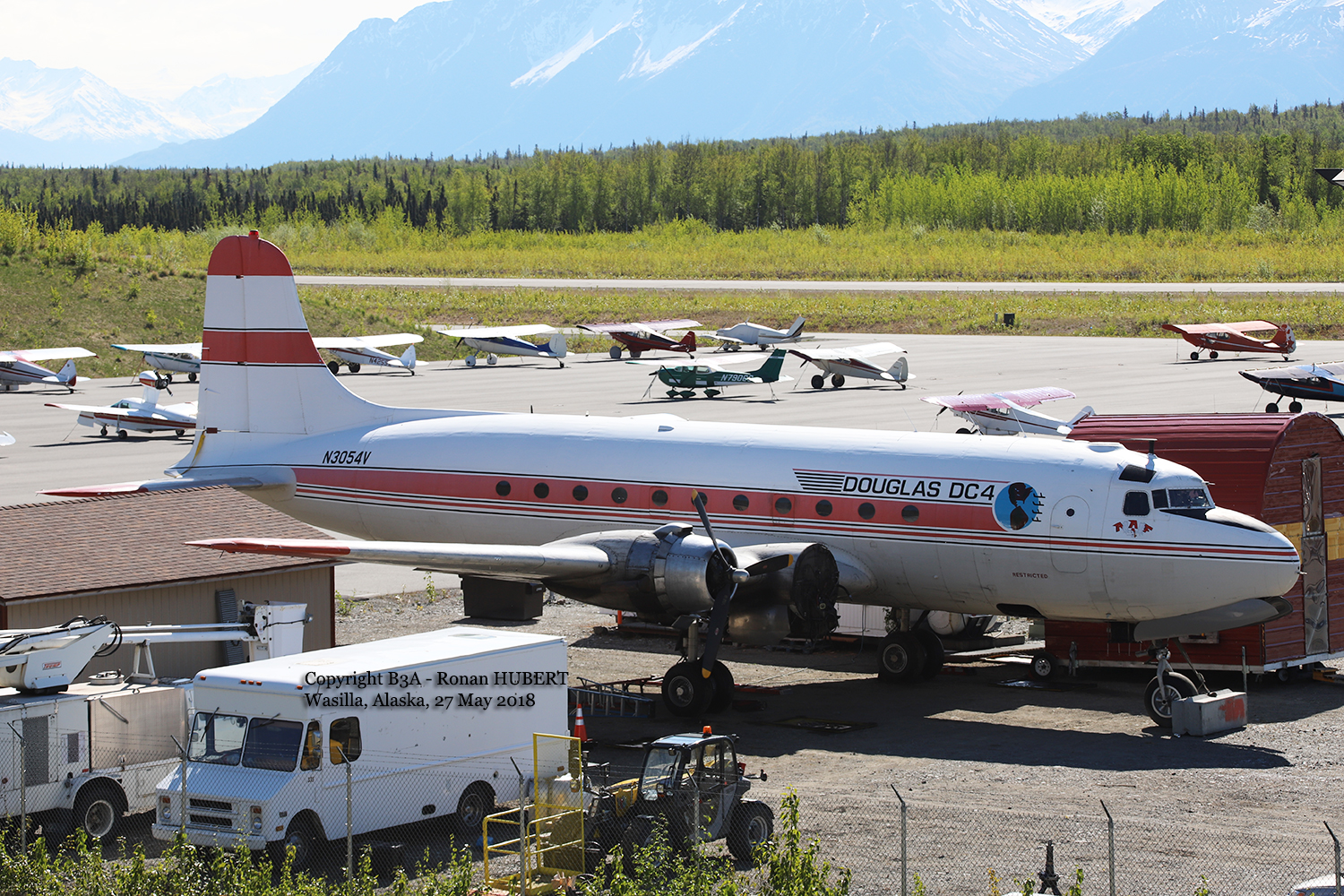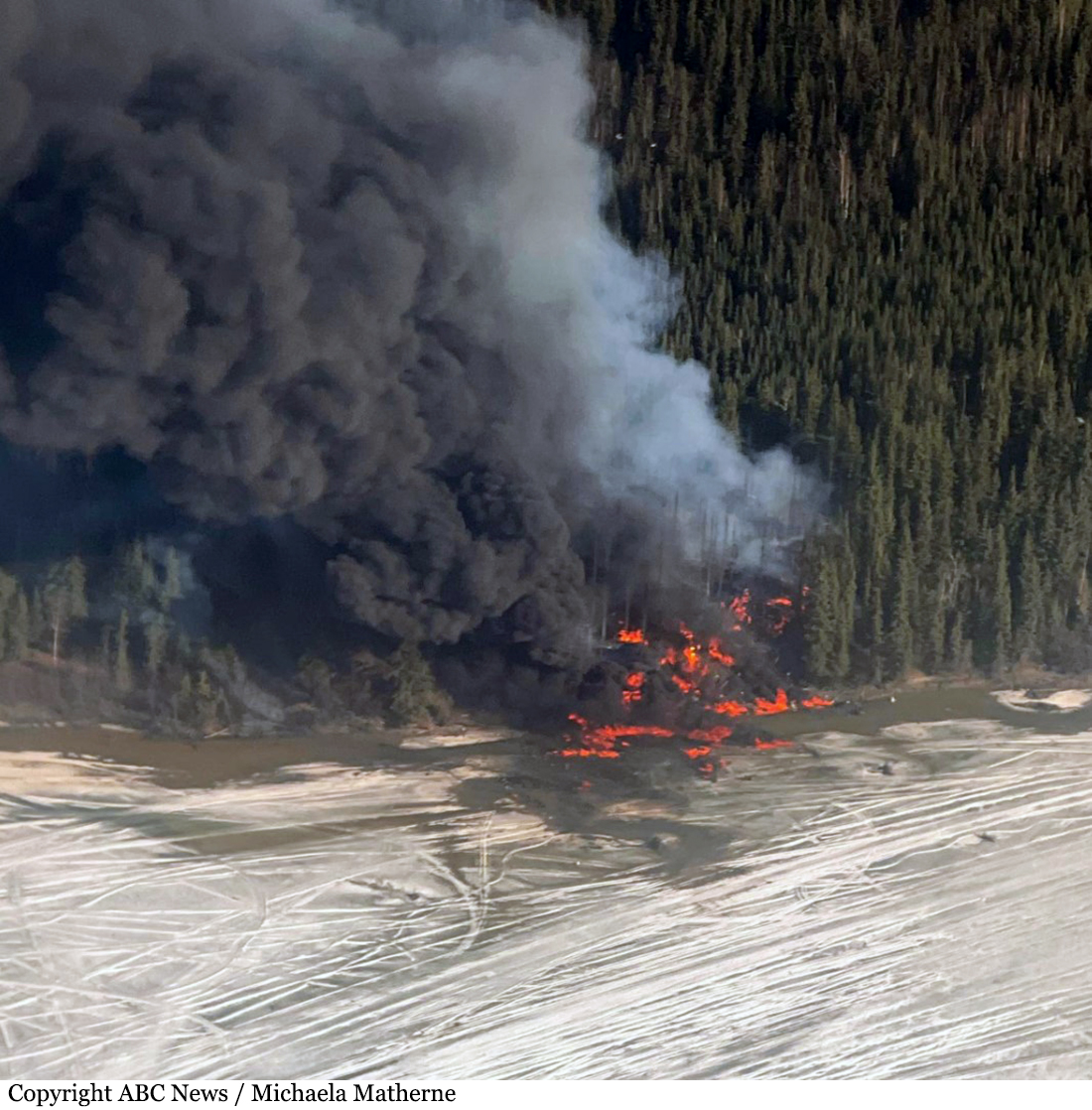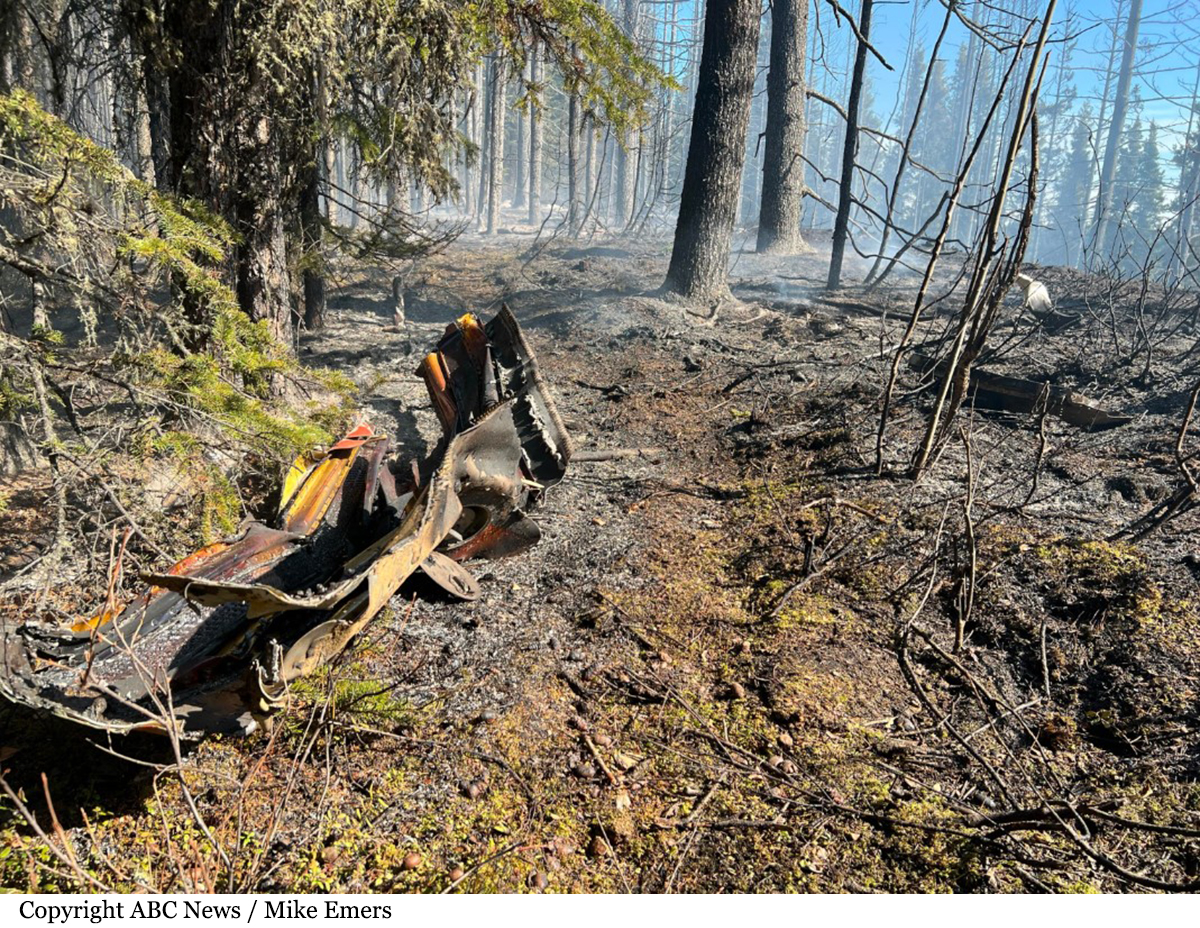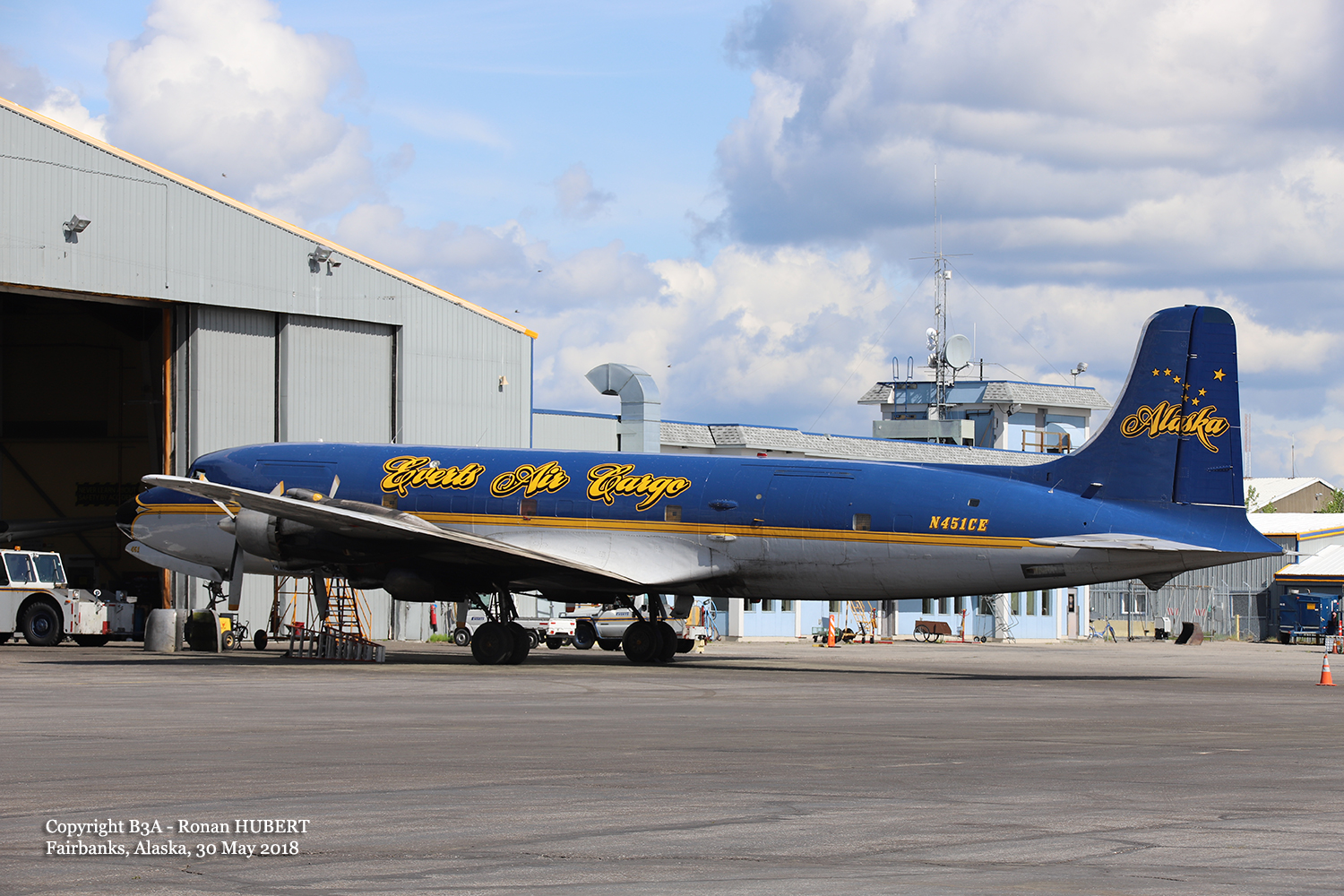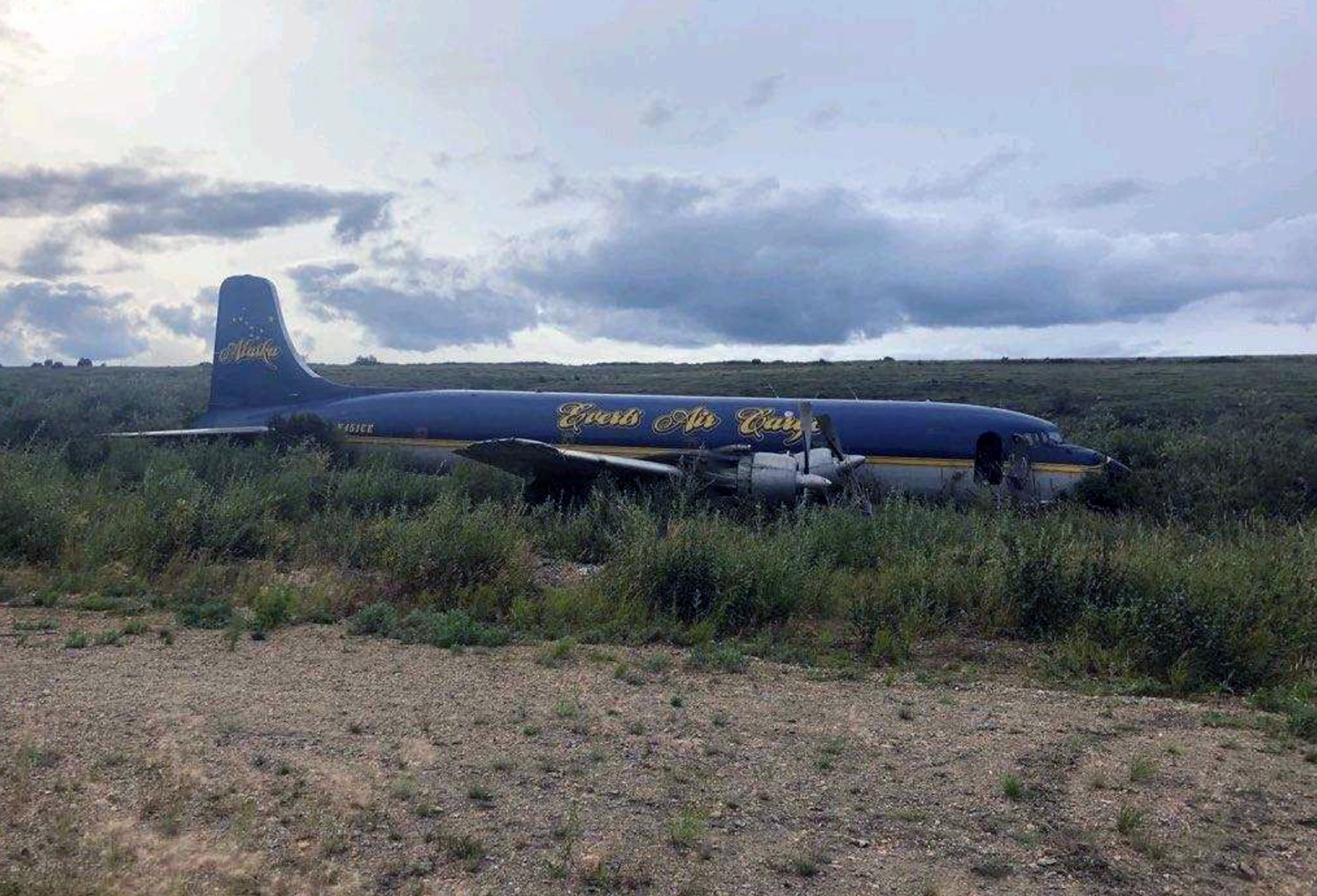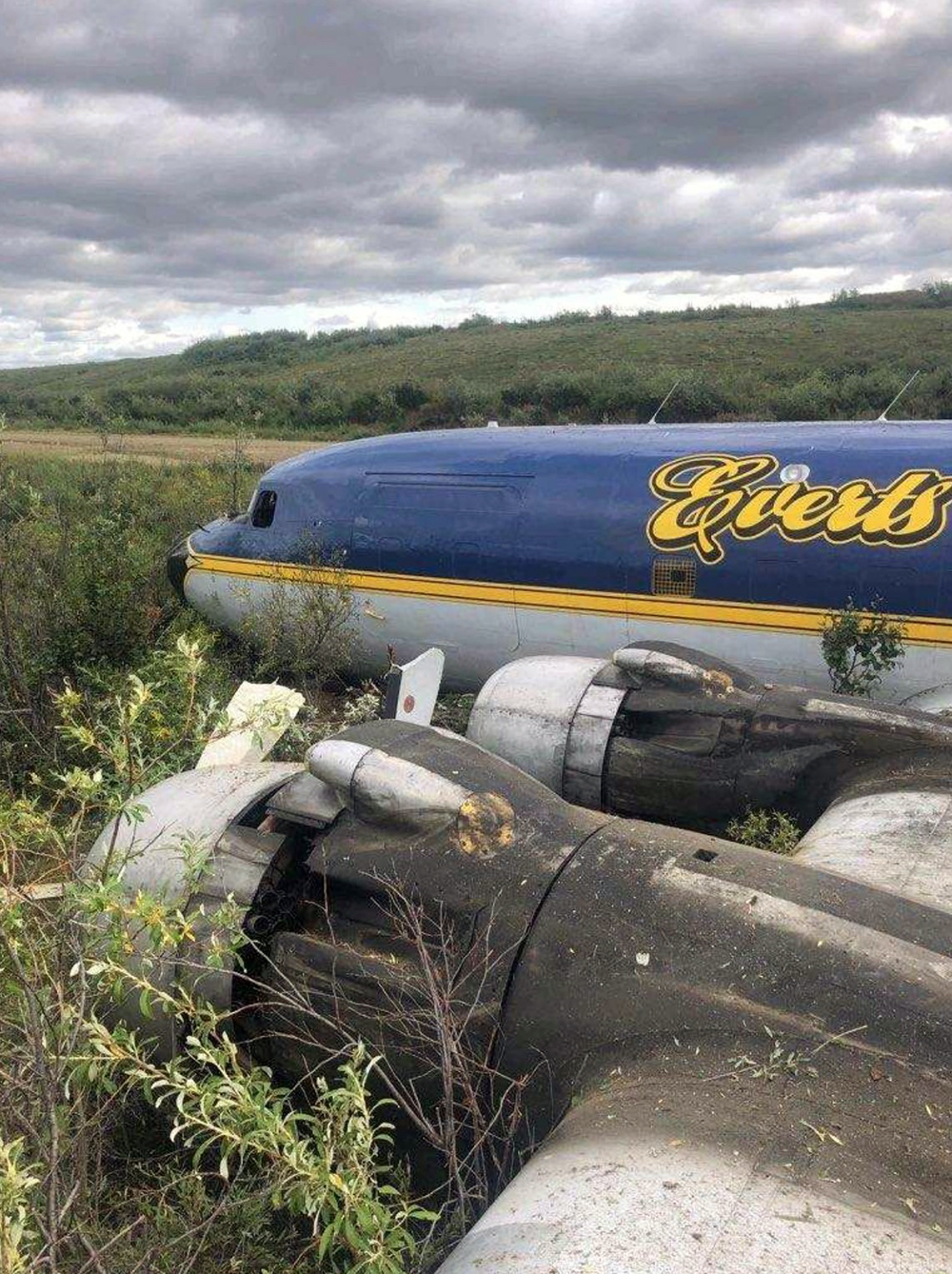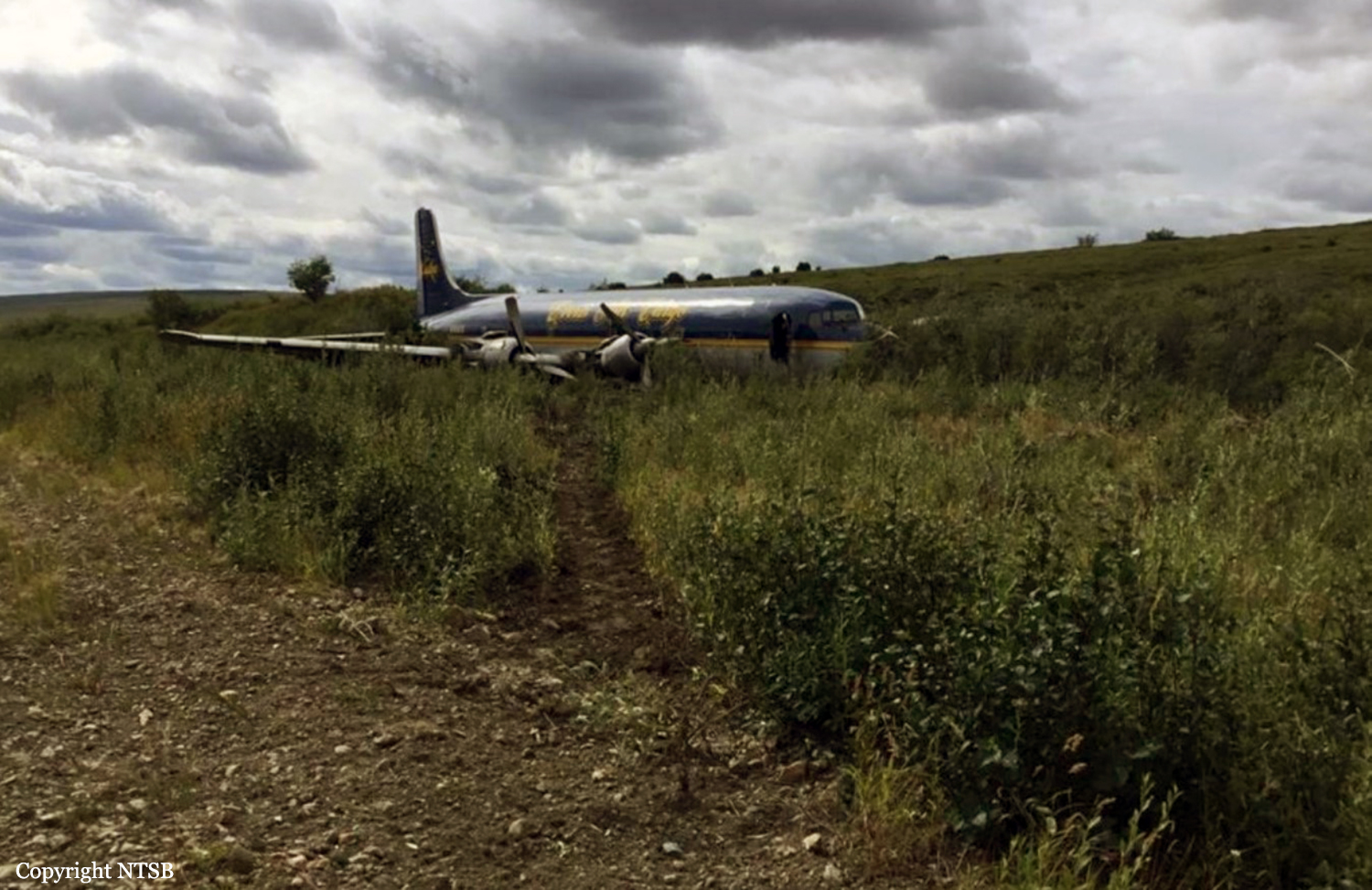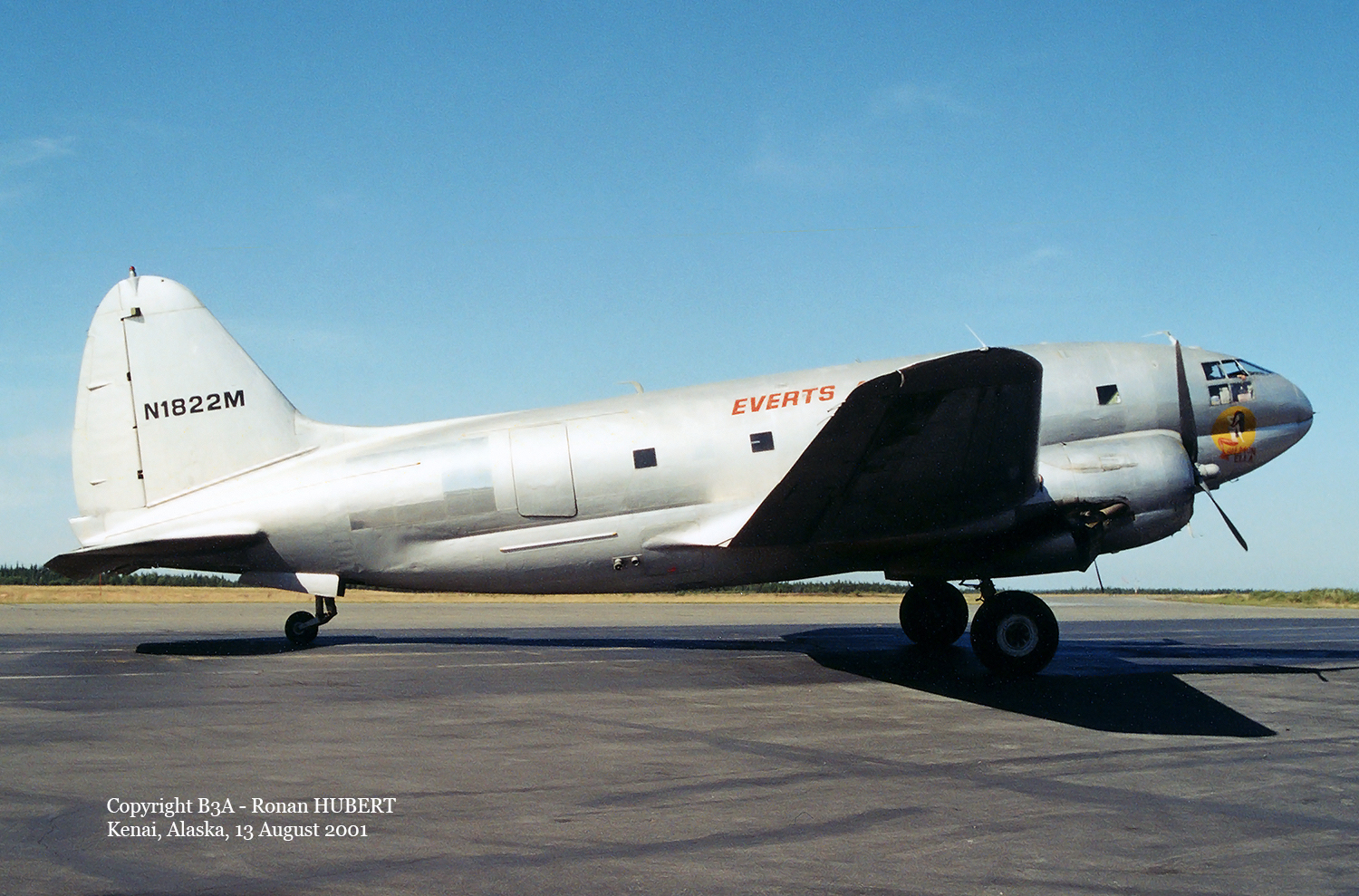Crash of a Douglas C-54D-DC Skymaster in Fairbanks: 2 killed
Date & Time:
Apr 23, 2024 at 1001 LT
Registration:
N3054V
Survivors:
No
MSN:
10547
YOM:
1945
Crew on board:
2
Crew fatalities:
Pax on board:
0
Pax fatalities:
Other fatalities:
Total fatalities:
2
Circumstances:
After takeoff from runway 20R at Fairbanks Airport, the airplane climbed to the altitude of about 1,700 feet when it rolled to the left. It entered an uncontrolled descent until it crashed in a huge explosion on the south bank of the Tanana River. The airplane was destroyed by impact forces and a post crash fire and both crew members were killed. The accident occurred about six minutes after takeoff, apparently following the explosion of one of both left engines.
